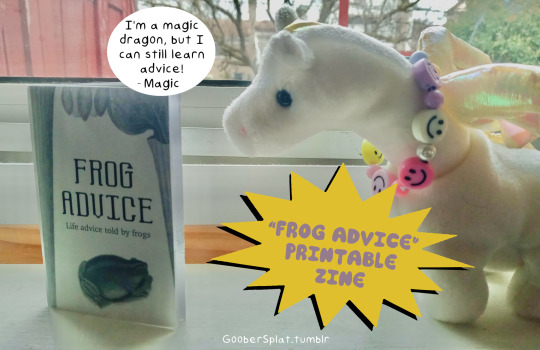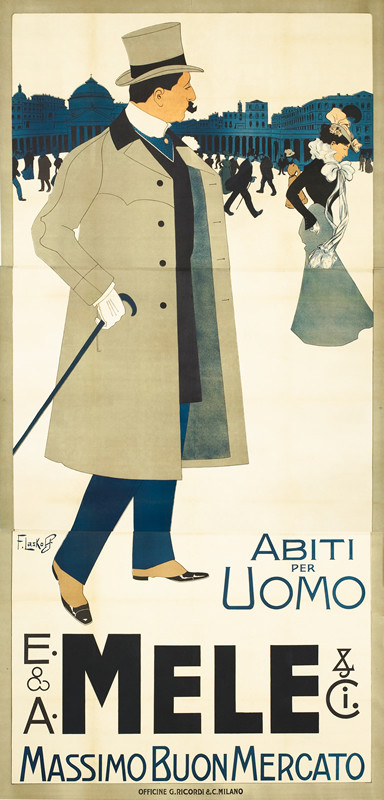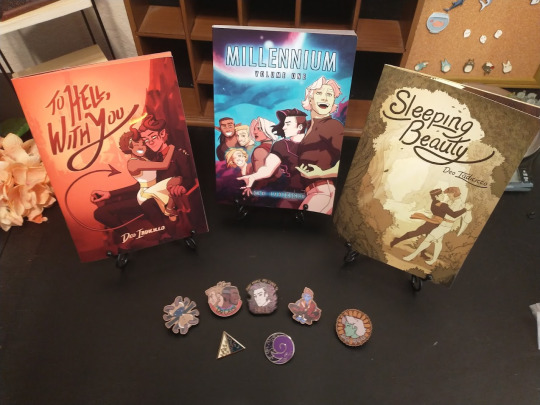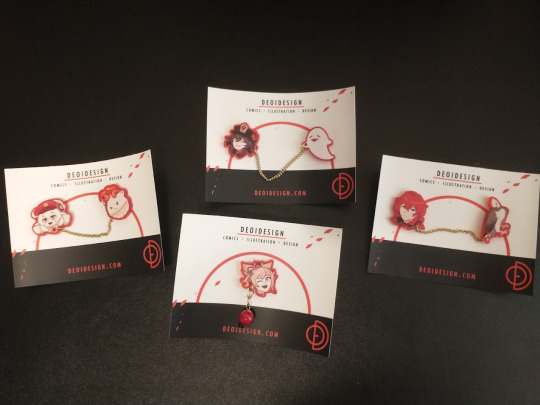#online advertisements
Text
This might seem like an "old man yells at cloud" situation, but it's just wild growing up and being told how dangerous distracted driving is - how, at highway speeds, you can traverse the length of a football field (100 yards, 91 meters) in a matter of seconds - how one split second sending a text while driving could result in a potential fatal crash, and then getting on the road as a driver and being surrounded by billboards. Their entire purpose is to catch one's attention, so they're lining major roads, which tend to be highways. How is it that you're told how important it is to never be distracted while driving, but still being advertised to?
At best, this type of advertising is an eyesore to pedestrians and motorists and a general waste of electricity to light it, and at worst, it is an active danger considering they are there to advertise and therefore, must catch people's attention.
I'm not even against advertising in theory, but this particular mode bothers me so much and I hate how pervasive it is - especially in large cities or highways.
#politics#i don't know much about são paulo banning marketing billboards but on paper i want that here in the USA#as a motorist it at best just makes me more anxious driving in those larger cities because i want to FOCUS ON THE ROAD#and passing 5000 billboards per mile isn't helping actually!#i've gotten good at filtering that out of my FOV but it's still fucking exhausting lol#i especially hate those modern electric billboards. despise them actually#i am aware that advertising is a critical aspect to business management in some cases...#...but it shouldn't risk the safety of the populous for you to advertise to them and i see things like billboards as risking safety...#...i feel similarly about online advertising in that so much of it risks internet user's safety...#...such as flashing ads online which risk triggering epileptic seizures in light/photo-sensitive folks#distracted driving (texting): NO >:( || distracted driving (being advertised to): YAYYYY :D#i've been driving on my own for a few years now and i've been thinking about this for ENTIRELY too long
3K notes
·
View notes
Text
Privacy first

The internet is embroiled in a vicious polycrisis: child safety, surveillance, discrimination, disinformation, polarization, monopoly, journalism collapse – not only have we failed to agree on what to do about these, there's not even a consensus that all of these are problems.
But in a new whitepaper, my EFF colleagues Corynne McSherry, Mario Trujillo, Cindy Cohn and Thorin Klosowski advance an exciting proposal that slices cleanly through this Gordian knot, which they call "Privacy First":
https://www.eff.org/wp/privacy-first-better-way-address-online-harms
Here's the "Privacy First" pitch: whatever is going on with all of the problems of the internet, all of these problems are made worse by commercial surveillance.
Worried your kid is being made miserable through targeted ads? No surveillance, no targeting.
Worried your uncle was turned into a Qanon by targeted disinformation? No surveillance, no targeting. Worried that racialized people are being targeted for discriminatory hiring or lending by algorithms? No surveillance, no targeting.
Worried that nation-state actors are exploiting surveillance data to attack elections, politicians, or civil servants? No surveillance, no surveillance data.
Worried that AI is being trained on your personal data? No surveillance, no training data.
Worried that the news is being killed by monopolists who exploit the advantage conferred by surveillance ads to cream 51% off every ad-dollar? No surveillance, no surveillance ads.
Worried that social media giants maintain their monopolies by filling up commercial moats with surveillance data? No surveillance, no surveillance moat.
The fact that commercial surveillance hurts so many groups of people in so many ways is terrible, of course, but it's also an amazing opportunity. Thus far, the individual constituencies for, say, saving the news or protecting kids have not been sufficient to change the way these big platforms work. But when you add up all the groups whose most urgent cause would be significantly improved by comprehensive federal privacy law, vigorously enforced, you get an unstoppable coalition.
America is decades behind on privacy. The last really big, broadly applicable privacy law we passed was a law banning video-store clerks from leaking your porn-rental habits to the press (Congress was worried about their own rental histories after a Supreme Court nominee's movie habits were published in the Washington City Paper):
https://en.wikipedia.org/wiki/Video_Privacy_Protection_Act
In the decades since, we've gotten laws that poke around the edges of privacy, like HIPAA (for health) and COPPA (data on under-13s). Both laws are riddled with loopholes and neither is vigorously enforced:
https://pluralistic.net/2023/04/09/how-to-make-a-child-safe-tiktok/
Privacy First starts with the idea of passing a fit-for-purpose, 21st century privacy law with real enforcement teeth (a private right of action, which lets contingency lawyers sue on your behalf for a share of the winnings):
https://www.eff.org/deeplinks/2022/07/americans-deserve-more-current-american-data-privacy-protection-act
Here's what should be in that law:
A ban on surveillance advertising:
https://www.eff.org/deeplinks/2022/03/ban-online-behavioral-advertising
Data minimization: a prohibition on collecting or processing your data beyond what is strictly necessary to deliver the service you're seeking.
Strong opt-in: None of the consent theater click-throughs we suffer through today. If you don't give informed, voluntary, specific opt-in consent, the service can't collect your data. Ignoring a cookie click-through is not consent, so you can just bypass popups and know you won't be spied on.
No preemption. The commercial surveillance industry hates strong state privacy laws like the Illinois biometrics law, and they are hoping that a federal law will pre-empt all those state laws. Federal privacy law should be the floor on privacy nationwide – not the ceiling:
https://www.eff.org/deeplinks/2022/07/federal-preemption-state-privacy-law-hurts-everyone
No arbitration. Your right to sue for violations of your privacy shouldn't be waivable in a clickthrough agreement:
https://www.eff.org/deeplinks/2022/04/stop-forced-arbitration-data-privacy-legislation
No "pay for privacy." Privacy is not a luxury good. Everyone deserves privacy, and the people who can least afford to buy private alternatives are most vulnerable to privacy abuses:
https://www.eff.org/deeplinks/2020/10/why-getting-paid-your-data-bad-deal
No tricks. Getting "consent" with confusing UIs and tiny fine print doesn't count:
https://www.eff.org/deeplinks/2019/02/designing-welcome-mats-invite-user-privacy-0
A Privacy First approach doesn't merely help all the people harmed by surveillance, it also prevents the collateral damage that today's leading proposals create. For example, laws requiring services to force their users to prove their age ("to protect the kids") are a privacy nightmare. They're also unconstitutional and keep getting struck down.
A better way to improve the kid safety of the internet is to ban surveillance. A surveillance ban doesn't have the foreseeable abuses of a law like KOSA (the Kids Online Safety Act), like bans on information about trans healthcare, medication abortions, or banned books:
https://www.eff.org/deeplinks/2023/05/kids-online-safety-act-still-huge-danger-our-rights-online
When it comes to the news, banning surveillance advertising would pave the way for a shift to contextual ads (ads based on what you're looking at, not who you are). That switch would change the balance of power between news organizations and tech platforms – no media company will ever know as much about their readers as Google or Facebook do, but no tech company will ever know as much about a news outlet's content as the publisher does:
https://www.eff.org/deeplinks/2023/05/save-news-we-must-ban-surveillance-advertising
This is a much better approach than the profit-sharing arrangements that are being trialed in Australia, Canada and France (these are sometimes called "News Bargaining Codes" or "Link Taxes"). Funding the news by guaranteeing it a share of Big Tech's profits makes the news into partisans for that profit – not the Big Tech watchdogs we need them to be. When Torstar, Canada's largest news publisher, struck a profit-sharing deal with Google, they killed their longrunning, excellent investigative "Defanging Big Tech" series.
A privacy law would also protect access to healthcare, especially in the post-Roe era, when Big Tech surveillance data is being used to target people who visit abortion clinics or secure medication abortions. It would end the practice of employers forcing workers to wear health-monitoring gadget. This is characterized as a "voluntary" way to get a "discount" on health insurance – but in practice, it's a way of punishing workers who refuse to let their bosses know about their sleep, fertility, and movements.
A privacy law would protect marginalized people from all kinds of digital discrimination, from unfair hiring to unfair lending to unfair renting. The commercial surveillance industry shovels endless quantities of our personal information into the furnaces that fuel these practices. A privacy law shuts off the fuel supply:
https://www.eff.org/deeplinks/2023/04/digital-privacy-legislation-civil-rights-legislation
There are plenty of ways that AI will make our lives worse, but copyright won't fix it. For issues of labor exploitation (especially by creative workers), the answer lies in labor law:
https://pluralistic.net/2023/10/01/how-the-writers-guild-sunk-ais-ship/
And for many of AI's other harms, a muscular privacy law would starve AI of some of its most potentially toxic training data:
https://www.businessinsider.com/tech-updated-terms-to-use-customer-data-to-train-ai-2023-9
Meanwhile, if you're worried about foreign governments targeting Americans – officials, military, or just plain folks – a privacy law would cut off one of their most prolific and damaging source of information. All those lawmakers trying to ban Tiktok because it's a surveillance tool? What about banning surveillance, instead?
Monopolies and surveillance go together like peanut butter and chocolate. Some of the biggest tech empires were built on mountains of nonconsensually harvested private data – and they use that data to defend their monopolies. Legal privacy guarantees are a necessary precursor to data portability and interoperability:
https://www.eff.org/wp/interoperability-and-privacy
Once we are guaranteed a right to privacy, lawmakers and regulators can order tech giants to tear down their walled gardens, rather than relying on tech companies to (selectively) defend our privacy:
https://pluralistic.net/2022/11/14/luxury-surveillance/#liar-liar
The point here isn't that privacy fixes all the internet's woes. The policy is "privacy first," not "just privacy." When it comes to making a new, good internet, there's plenty of room for labor law, civil rights legislation, antitrust, and other legal regimes. But privacy has the biggest constituency, gets us the most bang for the buck, and has the fewest harmful side-effects. It's a policy we can all agree on, even if we don't agree on much else. It's a coalition in potentia that would be unstoppable in reality. Privacy first! Then – everything else!

If you'd like an essay-formatted version of this post to read or share, here's a link to it on pluralistic.net, my surveillance-free, ad-free, tracker-free blog:
https://pluralistic.net/2023/12/06/privacy-first/#but-not-just-privacy

Image:
Cryteria (modified)
https://commons.wikimedia.org/wiki/File:HAL9000.svg
CC BY 3.0
https://creativecommons.org/licenses/by/3.0/deed.en
#pluralistic#privacy first#eff#privacy#surveillance#surveillance advertising#cold war 2.0#tiktok#saving the news from big tech#competition#interoperability#interop#online harms#ai#digital discrimination#discrimination#health care#hippa#medical privacy
436 notes
·
View notes
Text



CHECK OUT MY PRINTABLE ZINES
(Available on my KO-FI and Etsy)
LIBRARY ADVENTURES - This is an 8 page, black and white mini zine about things I have found in library books.
FROG ADVICE - This is an 8 page, black and white mini zine about frogs giving general advice
BEARY SAD - This is an 8 page, black and white mini zine featuring art and collage of bears.
+ Many more!
#nostalgia#kidcore#advertising#shop#online shop#Etsy#kofi#ko-fi#ko fi#zines#zine shop#zine maker#mini zine#foldable zine#printable zine#art#collage#nostalgiacore#beanie baby#Sanrio#photography#small business#small shop
250 notes
·
View notes
Text
Complete DVD rips of Always Sunny seasons 1-10 are up on the Internet Archive, as well as Blu-ray rips of Season 6's bonus features. Everything is included; episode commentaries, bonus features, bloopers, deleted scenes, etc etc. all episodes soft-subbed in English, French and Spanish. Go nuts.
I'll continue adding to this archive when I can, I plan on archiving various commercials and internet exclusive content from FX's YouTube channel as well, since they've been taking various videos down lately.
#iasip#it's always sunny in philadelphia#always sunny#ada speaks#iasip extras#iasip deleted scenes#the only thing i didnt upload from the dvds were commercials for various other FX shows that were being advertised#and the first episode of archer that was included on the s5 dvd#also pspspspsps sunny video editors. use these rips. i promise theyll make your edits look uber sexy#(can confirm. ive already used them in my own and they are MILES better than anything currently existing online. that's lowkey why i did it#(use handbrake and run them through a lossless reencode with a dash of deinterlacing if your video editing software doesn't like mkv format
565 notes
·
View notes
Text
The funniest kind of critical role "critique" is always going to be the 'they present themselves as if they aren’t rich/a company no I will not give any examples' crowd. Like what does this even mean. They start literally every single episode with informing you they are professional voice actors. They have clearly advertised sponsors. They have an entire line of merch and an animated show. The production value of the set is bonkers. They run a charity foundation. Do you want them to start every episode with a blaring siren and a warning saying 'beware! company run content! we make money!!' Are you just angry that they are friends having fun as they make a living. Do you have any understanding of how money works.
#critical role#it's always the same people who think they could’ve funded tlovm in its entirety with the kickstarter money too#or that the cast is personally responsible for every single fan acting badly#'how dare they say don’t forget to love each other when their fans are sometimes mean!' like cmon#my theory is that some people are so unable to view celebrities as actual people that they’ve started to view the critrole cast the same#as those corporately run social media accounts pretending to be fun and friendly while just trying to advertise#i don’t know how to tell you that the cast really are friends playing a game. they are also a company. and actual people hanging out online#they are incredibly open about all of this#if you somehow still think they are presenting themselves as not a company that is frankly a skill issue#cr discourse#i came across one of those old posts and was reminded how silly a take this is#nella talks cr
104 notes
·
View notes
Text
Misleading or false online reviews written by employees about their own company or competitors could result in penalties, Canada’s Competition Bureau has warned.
The federal agency is also urging employees to be transparent about whom they work for when post these reviews online.
In a news release Thursday, Competitions Bureau said businesses should watch out for all types of reviews, including testimonials on social media, posted by their employees that don’t properly identify themselves.
“When posting online reviews about their company or its competitors, employees must disclose all connections they have with the business, product or service they promote, even if they’re providing their honest opinion,” the bureau said in the release.
Continue Reading
Tagging @politicsofcanada
55 notes
·
View notes
Text
Back before geolocation became ubiquitous and websites just trusted you to accurately report where you live on their registration forms, I always claimed to reside in the Vatican City, just to mess with the data. I’m pretty sure that this explains some of the ads I receive to this day.
1K notes
·
View notes
Text










Fashion ads compilation from the Mele Brothers department stores (1890s - 1900s)
#I wanted to share some fashion stuff today because this style is a big inspo for me#the colours and contrasts here are gorgeous#the stores were operating from 1889 to 1932 and a lot of ads are uploaded online#the main artists were:#Marcello Dudovich#Achille Beltrame#Leopoldo Metlicovitz#Gian Emilio Malerba#fashion advertisement#historical fashion#1890s#1900s#early 1900s#1900s fashion#fashion illustration#vintage ads#vintage advertising#fashion ads#italian fashion#my posts#fashion
49 notes
·
View notes
Text
in the social media age, we live in an attention economy. understand this. to get peace of mind you must stop spending so recklessly
#that's the reason 90% of what you see online is inflammatory in some way#partially advertising and partially the downstream effects of that on culture as a whole#even when people aren't selling something they still communicate with the same manipulation because they're so used to it
20 notes
·
View notes
Text


My friends are demanding I post about my shop
I sell books, prints, keychains, pins, and stickers!
(I have more than is pictured, you can see everything in the shop)
I also have some Genshin Impact pins (and some prints) for if you're not interested in stuff from the obscure webcomics I make

But if you are interested in stuff from the obscure webcomics I make, I've got a ton of stuff! It's taking up a lot of space in my apartment, help me out!
#I hate hate hate hate hate posting promotional stuff#but also like making art is my full time job so I really should do it more#but that's enough for like. months. til I get bullied into doing it again I guess#shop#store#art store#my art#my ocs#online shoppping#that's enough of this I never wanna advertise again#I make merch as a hobby LOL I never consider like the getting rid of it part of things#but it really is taking up SO much space#and I can't get like. a printer. or stuff. til my sales warrant it...#so#help me out
77 notes
·
View notes
Text
least unhinged star stable ad i've gotten so far
#vid#star stable online#sso#ssoblr#they saw the tiktok ban and knew they had to lock in with advertising
22 notes
·
View notes
Note
Thoughts on the Negative Legend YouTube vids on the series?
if you want me to be completely honest, i have way too much shit going on in my real life to have the time or energy to watch someone tear apart a 20 year old series i genuinely enjoy and i will not be touching them with a 10 foot pole
#my only opinion is that it sounds extremely ill researched#and that i dont know who theyre trying to warn#the series is over 20 years old out of publication and is only sold online and is not advertised
17 notes
·
View notes
Link
“The Justice Department and a group of eight states sued Google on Tuesday, accusing it of illegally abusing a monopoly over the technology that powers online advertising, in the agency’s first antitrust lawsuit against a tech giant under President Biden and an escalation in legal pressure on one of the world’s biggest internet companies.
The lawsuit said Google had “corrupted legitimate competition in the ad tech industry by engaging in a systematic campaign to seize control of the wide swath of high-tech tools used by publishers, advertisers and brokers to facilitate digital advertising.”
The lawsuit asked U.S. District Court for the Eastern District of Virginia to force Google to sell much of its suite of ad technology products, which include software for buying and selling ads, a marketplace to complete the transactions and a service for showcasing the ads across the internet. The lawsuit also asked the court to stop the company from engaging in allegedly anticompetitive practices...
The new lawsuit “adds another important complication to Google’s efforts to deal with regulators worldwide,” said William Kovacic, a former chairman of the Federal Trade Commission. “There’s a chance one or more of these challenges is going to make its way through and hit the target...”
Attorney General Merrick B. Garland said monopolies “threaten the free and fair markets upon which our economy is based.” He added, “We will aggressively protect consumers, safeguard competition and work to ensure economic fairness and opportunity for all.”
The Biden administration is trying to use uncommon legal theories to clip the wings of some of America’s largest businesses. The F.T.C. recently asked a judge to block Meta from buying a virtual-reality start-up, a rare case that argues a deal could harm potential competition in a nascent market. The agency has also challenged Microsoft’s $69 billion purchase of the video game publisher Activision Blizzard, a notable action because the two companies are not primarily seen as direct competitors.
These efforts are expected to meet fierce resistance in federal courts. Judges have for decades subscribed to a view that antitrust violations should mostly be determined by whether they increase prices for consumers. But Jonathan Kanter, the chief of the Justice Department’s antitrust division, and Lina Khan, the F.T.C. chair, have said they are willing to lose cases that allow them to stretch the boundaries of the law and that put corporate America on notice.”
-via The New York Times, 1/24/23
#justice department#doj#merrick garland#biden#google#online ads#advertising industry news#advertising#monopoly#antitrust#us politics#corporations#big tech#good news#hope
210 notes
·
View notes
Text
I don’t think randomly dming strangers asking them to commission you is a good idea…
#it’s at least not at all practical because you’re putting people on the spot#and you’re already asking for their money#someone just did that to me like#it’s fine ppl are trying to get paid whatver#but when you do this what do you expect to happen… that the other person will just say ‘sure I’ll buy from you’ out of nowhere???#like just make a post and tag it/ask ppl if they could share it instead#not ‘commission me ^^?’ like it’s a little… lol#it’s nice to be bold and confident though that’s good and there’s nothing wrong with that#I know that it is hard for artists to advertise their work especially if they aren’t popular online#and you have to bank on people actually sharing your shit in the first place#it sucks so bad#deviantart used to be so good when it came to looking for commission work#I haven’t tried to use the forums in years but it still looks to be thriving#outside of the AI shit#in the forums on DA you could advertise your work to potential clients looking for artists to draw their ocs and stuff#they’ll usually send you a note if interested#rambling
17 notes
·
View notes
Text
look at vex from sackboy a big adventure (available on ps4 ps5 and pc (epic games and steam))

















#playstation#ps4#ps5#sony playstation#video game#steam game#gamers of tumblr#pc game#sackboy#sackboy a big adventure#my twitter bot died and i need to do SOMETHING with these 500+ images of him#theres a new sackboy game its 3 years old and they did a shit job advertising it so here i am#he looks like oogie boogies gay cousin#post this cat everywhere#hes literally the embodiment of nightmares but he so cute tho#ive done everything i can think of to advertise him help#i post about him constantly everywhere#i even submitted him to a tiktok show once. they didnt like him but any publicity is good publicity?#i just want more people to like my clown husband#i have seen every fanwork with him online please i need more
90 notes
·
View notes
Text
...I can't believe I have to say this, but I'm allowed to ban people from my server that trigger other members that are survivors of SA and CSA by blatantly consuming and promoting that sort of content. And I'm allowed to personally block people for whatever reason I wish. Especially if they are putting minor sim characters in sexual poses, posting sexual content on their simblr untagged that allows minors to follow for their cc, and liking posts that call me slurs and tell me to kill myself. If you're someone that's hurt over that and think it's talking bad about you as a person for people to openly not be comfortable with that, you need to grow up. Actually follow the tenants of the "dead dove" concept you're an apparent enthusiast of by tagging your fetish content and keeping it away from minors, and temper some of the terrible aspects of your personality. You'll have less trouble in the future.
#ceci speaks#nonsims#text#tw csa mention#tw sa mention#no im not naming you because youre not worth my time attention or advertisement#and no im not acknowledging this further#im in mourning and have far more to pay attention to than your discord drama#bad faith arguments do not deserve my time#i cant believe i even have to say this shit#i was going to post the screenshots and all that shit and name you but frankly also#a) i dont think you can handle that since you seem like such a fragile person and im concerned for your mental health#and b) i dont want to further trigger myself by going through all that shit again#so hopefully this is explanation enough for why i 'dont like you'#its not even dislike i just want you far far away from me and my spaces online#i wish you the best and hope you can get some help
36 notes
·
View notes